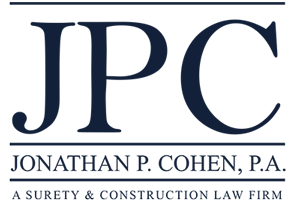Help from a Fort Lauderdale Lis Pendens Lawyer
In Florida, subcontractors on construction projects sometimes can struggle to recover payment for the work they perform. In some cases, general contractors might pay subcontractors late, and in others, the project owners might refuse to pay the subcontractors what they are owed. In either situation, the law provides a remedy for subcontractors by allowing them to file a claim of lien and lis pendens against the project owner’s property to secure payment. Below is some information about a recent case handled by Fort Lauderdale lis pendens lawyer Jonathan P. Cohen, Esq. illustrating how these legal tools can work to secure payment for the work performed.
Roofing Subcontractor Fired and Not Paid for Work
A roofing subcontractor was hired to perform work by a homeowner on their residence. The subcontractor was replacing the home’s roof. Before the subcontractor received payment, the homeowner fired them and refused to pay what was owed. With the help of Fort Lauderdale construction lawyer Jonathan P. Cohen, Esq., the subcontractor filed a claim of lien against the homeowner’s property and perfected it to secure payment.
What Is a Fort Lauderdale Claim of Lien?
A claim of lien in Florida is a legal tool that subcontractors and contractors can use when they are not paid for the work performed on construction projects. These liens are allowed under §§ 713.001 – 713.37, Fla. Stat. (2023) and provide the unpaid subcontractor or contractor with a security interest in the property to ensure payment. However, the subcontractor must meet a few deadlines and notice requirements to file the lien correctly, and it will only be valid if it is correctly perfected. A subcontractor can enforce a claim of lien and force the property owner to sell the property to repay their security interest in the property to recoup the money they are owed for labor and materials they spent while working on the project.
Notice Requirements and Deadlines for Claims of Lien in Florida
Under Florida law, a claim of lien must be properly filed and perfected to be valid. The first thing a subcontractor must do is send a notice to owner (NTO) to the project owner no later than 45 days after the subcontractor first provided materials or labor, 45 days after work first began on specialty materials, or 45 days before the final payment is due from the project owner to the primary contractor, whichever is earliest.
The subcontractor then needs to pay attention to two deadlines. They must file a claim of lien within 90 days of the last date they furnished materials or labor. If the lien is not filed within this deadline, the subcontractor won’t be able to secure it against the property. Once the claim of lien is filed, the subcontractor must properly serve it on the property owner within 15 days.
Once a claim of lien has been filed, the subcontractor will have a one-year deadline to enforce the lien. However, if the property owner files a notice to contest the lien, the deadline will be no later than 60 days after the notice to contest it is filed and served on the subcontractor. Claim of liens can’t be extended, so it’s important for subcontractors to strictly adhere to these deadlines and work with an experienced Fort Lauderdale construction lawyer at the law firm of Jonathan P. Cohen, P.A. to ensure everything is handled properly.
In the case of the roofing subcontractor, Fort Lauderdale construction lawyer Jonathan P. Cohen helped them to file everything properly and to file a lawsuit against the homeowner within the deadline.
Lis Pendens Filed by Fort Lauderdale Lis Pendens Lawyer on Behalf of Subcontractor
Once the lawsuit was pending, Fort Lauderdale lis pendens lawyer Jonathan P. Cohen, Esq. filed a lis pendens with the county recorder. The homeowner subsequently wanted to place the home on the market for sale but couldn’t do so because of the lis pendens. To move forward with the home sale, the homeowner was forced to settle with the roofing subcontractor and the law firm of Jonathan P. Cohen, P.A. and pay the subcontractor what they were owed so that the cloud could be removed from the title.
What Is a Lis Pendens?
A lis pendens is a legal notice that a property is subject to a legal dispute. When it is filed with the county recorder, it places a cloud on the title to the property. While it won’t necessarily prevent the home from being sold, the cloud will remain on the property’s title, and most banks and financial institutions will not agree to lend money to prospective buyers to purchase a property with a lis pendens on the chain of title.
While a lis pendens is not the same thing as a claim of lien, it is an essential part of the process. It notifies the public and the owner that a foreclosure lawsuit has been filed against the property.
Consult an Attorney at Jonathan P. Cohen, P.A.
In the roofing subcontractor’s case, retaining Fort Lauderdale construction lawyer Jonathan P. Cohen, Esq. to file a claim of lien, foreclosure lawsuit, and a lis pendens against the title of the homeowner’s property allowed them to recover the money they were owed for the work and materials provided to the property owner. If you are a subcontractor who is struggling to recover money owed to you for the work you have performed on a project, you should reach out to the law firm of Jonathan P. Cohen, P.A. for assistance. Fort Lauderdale construction lawyer Jonathan P. Cohen, Esq. has more than a decade of experience representing clients in the construction industry and can offer in-depth legal knowledge to explain your rights and legal options. Call us today at (954) 462-8850 to schedule an appointment.
The information provided in this article does not, and is not intended to, constitute legal advice. The content in this article is presented for general informational purposes only.

